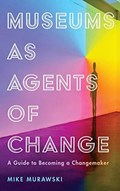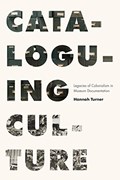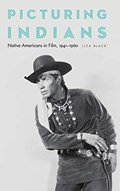Narrow Results By
School of racism : a Canadian history, 1830-1915
https://archives.whyte.org/en/permalink/catalogue26242
- Medium
- Library - Book (including soft-cover and pamphlets)
- Published Date
- 2023
- Author
- Larochelle, Catherine
- Publisher
- Winnipeg, Manitoba, Canada : University of Manitoba Press
- Edition
- First English-language edition
- Call Number
- 08.1 L32s
- Author
- Larochelle, Catherine
- Responsibility
- Translated by S.E. Stewart
- Edition
- First English-language edition
- Publisher
- Winnipeg, Manitoba, Canada : University of Manitoba Press
- Published Date
- 2023
- Physical Description
- viii, 464 pages : illustrations ; 24 cm
- Abstract
- Exposing the history of racism in Canada's classrooms Winner of the prestigious Clio-Quebec, Lionel-Groulx, and Canadian History of Education Association awards In School of Racism, Catherine Larochelle demonstrates how Quebec's school system has, from its inception and for decades, taught and endorsed colonial domination and racism. This English translation of the award-winning book extends its crucial lesson to readers across the country, bridging English- and French-Canadian histories to deliver a better understanding of Canada's past and present identity. Using postcolonial, antiracist, and feminist theories and methodologies, Larochelle examines late-nineteenth and early-twentieth-century classroom materials used in Quebec's public and private schools. Many of these textbooks, and others like them, made their way into curricula across Canada. Larochelle's innovative analysis illuminates how textual and visual representations found in these archives constructed Indigenous, Black, Arab, and Asian peoples as "the Other" while reinforcing the collective identity of Quebec, and Canada more broadly, as white. Uncovering the origins and persistence of individual and systemic racism against people of colour, Larochelle shows how Otherness was presented to--and utilized by--young Canadians for almost a century. School of Racism names the ways in which Canada's education system has supported and sustained ideologies of white supremacy--ideologies so deeply embedded that they still linger in school texts and programming today. The book offers new insight into how Canadian and Quebecois concepts of nationalism and racism overlap, helps educators confront racism in their classrooms, and deepens urgent discussions about race and colonialism throughout Canada. -- Provided by publisher.
- Contents
- Cover -- Contents -- Author's Note -- Introduction -- Chapter 1. The Theories of Otherness -- Chapter 2. Other Societies: Imperialist Knowledge and Orientalist Representations -- Chapter 3. The Other-Body, or Alterity Inscribed in the Flesh -- Chapter 4. The Indian: Domination, Erasure, and Appropriation -- Chapter 5. The Other Observed or "Teaching through the Eyes" -- Chapter 6. Of Missions and Emotions: Children and the Missionary Mobilization -- Conclusion -- Acknowledgements -- Appendix -- List of Abbreviations -- Notes -- Bibliography -- Index.
- ISBN
- 9781772840537
- Accession Number
- P2024.02
- Call Number
- 08.1 L32s
- Collection
- Archives Library
This material is presented as originally created; it may contain outdated cultural descriptions and
potentially offensive content.
Read more.
Blood memory : the tragic decline and improbable resurrection of the American Buffalo
https://archives.whyte.org/en/permalink/catalogue26204
- Medium
- Library - Book (including soft-cover and pamphlets)
- Published Date
- 2023
- Author
- Duncan, Dayton and Burns, Ken
- Publisher
- New York : Alfred A. Knopf
- Call Number
- 08 D91b
- Publisher
- New York : Alfred A. Knopf
- Published Date
- 2023
- Physical Description
- xvi, 329 pages : illustrations (chiefly color) ; 24 cm
- Subjects
- Buffalo
- Pablo-Allard buffalo round-up
- Conservation
- Indigenous
- Colonialism
- Environment
- Ecology
- Abstract
- The epic story of the buffalo in America, from prehistoric times to today--a moving and beautifully illustrated work of natural history. The American buffalo--our nation's official mammal-is an improbable, shaggy beast that has found itself at the center of many of our most mythic and sometimes heartbreaking tales. The largest land animals in the Western Hemisphere, they are survivors of a mass extinction that erased ancient species that were even larger. For nearly 10,000 years, they evolved alongside Native people who weaved them into every aspect of daily life; relied on them for food, clothing, and shelter; and revered them as equals. Newcomers to the continent found the buffalo fascinating at first, but in time they came to consider them a hindrance to a young nation's expansion. And in the space of only a decade they were slaughtered by the millions for their hides, with their carcasses left to rot on the prairies. Then, teetering on the brink of disappearing from the face of the earth, they would be rescued by a motley collection of Americans, each of them driven by different--and sometimes competing--impulses. This is the rich and complicated story of a young republic's heedless rush to conquer a continent, but also of the dawn of the conservation era--a story of America at its very best and worst -- Provided by publisher.
- Contents
- Part 1: The Trail to Extinction -- The Buffalo and the People -- Strangers -- Omen in the Skies -- The Iron Horse -- Kills Tomorrow -- Part 2: Back From the Brink -- A Death Wind for My People -- Just in the Nick of Time -- Changes of Heart -- Ghosts -- The Last Refuge -- Blood Memory -- Big Medicine.
- Notes
- Dayton Duncan ; based on a documentary film by Ken Burns ; written by Dayton Duncan ; with an introduction by Ken Burns ; picture research by Emily Mosher and Susan Shumaker ; design by Maggie Hinders.
- Whyte Museum archival collections utilized.
- ISBN
- 9780593537343
- Accession Number
- P2023.25
- Call Number
- 08 D91b
- Collection
- Archives Library
This material is presented as originally created; it may contain outdated cultural descriptions and
potentially offensive content.
Read more.
- Medium
- Library - Book (including soft-cover and pamphlets)
- Published Date
- 2022
- Author
- Florence, Melanie
- Publisher
- Toronto, Ontario : Second Story Press
- Edition
- 10th
- Call Number
- 05 F66s
- Author
- Florence, Melanie
- Responsibility
- Edited by Kathryn Cole and Illustrated by Gabrielle Grimard
- Edition
- 10th
- Publisher
- Toronto, Ontario : Second Story Press
- Published Date
- 2022
- Physical Description
- 1 volume (unpaged) : colour illustrations ; 23 cm
- Subjects
- Cree
- Residential School
- Children
- Language
- Colonialism
- Abstract
- This picture book explores the intergenerational impact of Canada's residential school system that separated Indigenous children from their families. The story recognizes the pain of those whose culture and language were taken from them, how that pain is passed down and shared through generations, and how healing can also be shared. Stolen Words captures the beautiful, healing relationship between a little girl and her grandfather. When she asks him how to say something in his language - Cree - her grandpa admits that his words were stolen from him when he was a boy. The little girl then sets out to help her grandfather regain his language. --Publisher's description
- ISBN
- 9781772600377
- Accession Number
- P2023.17
- Call Number
- 05 F66s
- Collection
- Archives Library
This material is presented as originally created; it may contain outdated cultural descriptions and
potentially offensive content.
Read more.
Unpapered : writers consider Native American identity and cultural belonging
https://archives.whyte.org/en/permalink/catalogue26195
- Medium
- Library - Book (including soft-cover and pamphlets)
- Published Date
- 2023
- Publisher
- Lincoln : University of Nebraska Press
- Call Number
- 07.2 G46u
- Responsibility
- Edited by Diane Glancy and Linda Rodriguez
- Publisher
- Lincoln : University of Nebraska Press
- Published Date
- 2023
- Physical Description
- xiv, 236 pages : illustrations ; 23 cm
- Subjects
- Indigenous Culture
- Indigenous Customs
- Indigenous People
- Indigenous Traditions
- History
- Turtle Island
- Identity
- Colonialism
- Abstract
- Unpapered is a collection of personal narratives by Indigenous writers exploring the meaning and limits of Native American identity beyond its legal margins. Native heritage is neither simple nor always clearly documented, and citizenship is a legal and political matter of sovereign nations determined by such criteria as blood quantum, tribal rolls, or community involvement. Those who claim a Native cultural identity often have family stories of tenuous ties dating back several generations. Given that tribal enrollment was part of a string of government programs and agreements calculated to quantify and dismiss Native populations, many writers who identify culturally and are recognized as Native Americans do not hold tribal citizenship. With essays by Trevino Brings Plenty, Deborah Miranda, Steve Russell, and Kimberly Wieser, among others, Unpapered charts how current exclusionary tactics began as a response to “pretendians”—non-indigenous people assuming a Native identity for job benefits—and have expanded to an intense patrolling of identity that divides Native communities and has resulted in attacks on peoples’ professional, spiritual, emotional, and physical states. An essential addition to Native discourse, Unpapered shows how social and political ideologies have created barriers for Native people truthfully claiming identities while simultaneously upholding stereotypes --Publisher's description.
- Contents
- Introduction / by Diane Glancy -- Show Your Papers. Paperwork / Kim Shuck -- Things you can do with your chart for calculating quantum of Indian blood / Deborah Miranda -- The white box / Kimberly L. Becker -- Seeking the Indian gravy train / Steve Russell -- Unpapered / Diane Glancy -- Finding the Way. On Chumash Land / Terra Trevor -- A salmon-fishing story / Abigail Chabitnoy -- Confessions of a detribalized mixed-blood / Jeanetta Calhoun Mish -- Thinking with Bigfoot about a Jackpine Savage : cryptogenealogical reflections / Carter Meland -- Identity Wars. "You don't look Indian" / Michele Leonard -- Pretend Indian exegesis : the pretend Indian uncanny valley hypothesis in literature and beyond / Trevino Brings Plenty -- Dead Indians. Live Indians. Legal Indians. / Ron Querry -- The animals' ballgame / Geary Hobson -- We never spoke / Linda Boyden -- Why We Matter. On being Chamorro and belonging to Guam / Craig Santos Perez -- Aunt Ruby's little sister dances / Kimberly Wieser -- Buffalo heads in diners : remnant populations / Denise Dotson Low -- And thus the tribes diminish / Linda Rodriguez.
- ISBN
- 9781496235008
- Accession Number
- P2023.15
- Call Number
- 07.2 G46u
- Collection
- Archives Library
This material is presented as originally created; it may contain outdated cultural descriptions and
potentially offensive content.
Read more.
Indigenous resurgence in an age of reconciliation
https://archives.whyte.org/en/permalink/catalogue26196
- Medium
- Library - Book (including soft-cover and pamphlets)
- Published Date
- 2023
- Publisher
- Toronto [Ontario] ; Buffalo ; London : University of Toronto Press
- Call Number
- 07.2 St2i
- Responsibility
- Edited by Heidi Kiiwetinepinesiik Stark, Aime´e Craft, and Hokulani K Aikau
- Publisher
- Toronto [Ontario] ; Buffalo ; London : University of Toronto Press
- Published Date
- 2023
- Physical Description
- vi, 263 pages : illustrations ; 23 cm
- Subjects
- Indigenous Culture
- Indigenous Customs
- Indigenous People
- Indigenous Traditions
- Reconciliation
- Colonialism
- Identity
- Gender
- Abstract
- What would Indigenous resurgence look like if the parameters were not set with a focus on the state, settlers, or an achievement of reconciliation? Indigenous Resurgence in an Age of Reconciliation explores the central concerns and challenges facing Indigenous nations in their resurgence efforts, while also mapping the gaps and limitations of both reconciliation and resurgence frameworks. The essays in this collection centre the work of Indigenous communities, knowledge, and strategies for resurgence and, where appropriate, reconciliation. The book challenges narrow interpretations of indigeneity and resurgence, asking readers to take up a critical analysis of how settler colonial and heteronormative framings have infiltrated our own ways of relating to our selves, one another, and to place. The authors seek to (re)claim Indigenous relationships to the political and offer critical self-reflection to ensure Indigenous resurgence efforts do not reproduce the very conditions and contexts from which liberation is sought. Illuminating the interconnectivity between and across life in all its forms, this important collection calls on readers to think expansively and critically about Indigenous resurgence in an age of reconciliation.-- Provided by publisher.
- Contents
- Artist Statement / Lianne Marie Leda Charlie -- Introduction: Generating a Critical Resurgence Together / Heidi Kiiwetinepinesiik Stark-- Part 1: Realizing Resurgence Together. 1. Beyond the Grammar of Settler Apologies / Mishuana Goeman -- 2. Spirit and Matter: Resurgence as Rising and (Re)creation as Ethos / Dian Million -- 3. Removing Weeds so Natives Can Grow: A Metaphor Reconsidered / Hokulani K. Aikau -- 4. (Ad)dressing Wounds: Expansive Kinship Inside and Out / Dallas Hunt -- Part 2: Claiming Our Relationships to the Political. 5. Beyond Rights and Wrongs: Towards Resurgence of a Treaty-Based Ethic of Relationality / Gina Starblanket -- 6. Thawing the Frozen Rights Theory: On Rejecting Interpretations of Reconciliation and Resurgence That Define Indigenous Peoples as Frozen in a Pre-colonial Past / Aimée Craft -- 7. Nêhiyaw Hunting Pedagogies and Revitalizing Indigenous Laws / Darcy Lindberg -- Part 3: Narrating Reconciliation and Resurgence. 8. Thinking through Resurgence Together: A Conversation between Sarah Hunt/Tlalilila’ogwa and Leanne Betasamosake Simpson / Sarah Hunt/Tlalilila’ogwa and Leanne Betasamosake Simpson -- 9. Truth-Telling amidst Reconciliation Discourses: How Stories Reshape Our Relationships / Jeff Corntassel -- 10. Political Action in the Time of Reconciliation / Corey Snelgrove and Matthew Wildcat -- Part 4: Reconciling Lands, Bodies, and Gender. 11. Body Land, Water, and Resurgence in Oaxaca / Isabel Altamirano-Jiménez -- 12. To Respect Indigenous Territorial Protocol: Hosting the Olympic Games on Indigenous Lands in Settler Colonial Canada / Christine O’Bonsawin -- 13. “Descendants of the Original Lords of the Soil”: Gender, Kinship, and an Indignant Model of Métis Nationhood / Daniel Voth -- 14. Red Utopia / Billy-Ray Belcourt.
- ISBN
- 9781487544607
- Accession Number
- P2023.10
- Call Number
- 07.2 St2i
- Collection
- Archives Library
This material is presented as originally created; it may contain outdated cultural descriptions and
potentially offensive content.
Read more.
Unsettling Canadian art history
https://archives.whyte.org/en/permalink/catalogue25727
- Medium
- Library - Book (including soft-cover and pamphlets)
- Published Date
- 2022
- Publisher
- Montreal ; Kingston ; London ; Chicago : McGill-Queen's University Press
- Call Number
- 06 M84u
- Responsibility
- Edited by Erin Morton
- Publisher
- Montreal ; Kingston ; London ; Chicago : McGill-Queen's University Press
- Published Date
- 2022
- Physical Description
- xviii, 340 pages : illustrations (some in colour) ; 26 x 21 cm
- Subjects
- Canada
- Art
- Colonialism
- History-Canada
- Race
- Abstract
- Rethinking visual and material histories of settler colonialism, enslavement, and racialized disapora in the contested white settler state of Canada Bringing together fifteen scholars of art and culture, Unsettling Canadian Art History addresses the visual and material culture of settler colonialism, enslavement, and racialized diasporas in the contested white settler state of Canada. This collection offers new avenues for scholarship on art, archives, and creative practice by rethinking histories of Canadian colonialisms from Black, Indigenous, racialized, feminist, queer, trans, and Two-Spirit perspectives. Writing across many positionalities, contributors offer chapters that disrupt colonial archives of art and culture, excavating and reconstructing radical Black, Indigenous, and racialized diasporic creation and experience. Exploring the racist frameworks that continue to erase histories of violence and resistance, Unsettling Canadian Art History imagines the expansive possibilities of a decolonial future. Unsettling Canadian Art History affirms the importance of collaborative conversations and work in the effort to unsettle scholarship in Canadian art and culture. -- Provided by publisher.
- Contents
- Introduction: Unsetting Canadian art history / Erin Morton -- Part One: Unsettling settler methodologies, re-centring decolonial knowledge -- White settler tautologies and pioneer lies in Mi’km’ki / Travis Wysote and Erin Morton -- Notes to a nation: Teachings on land through the art of Norval Morrisseau / Carmen Robertson -- Embodying decolonial methodology: Building and sustaining critical relationality in the cultural sector / Leah Decter and Carla Taunton -- Silence as resistance: When silence is the only weapon you have left / Lindsay McIntyre -- Part Two: Excavating and creating decolonial archives -- Truth is no stranger to (para)fiction: Settlers, arrivants, and place in Iris Ha¨ussler’s He Named Her Amber, Camille Turner’s BlackGrange, and Robert Houle’s Garrison Creek Project / Mark A. Cheetham -- “Ran away from her Master…a Negroe Girl named Thursday”: Examining evidence of punishment, isolation, trauma, and illness in Nova Scotia and Quebec fugitive slave advertisements / Charmaine A. Nelson -- “Miner with a Heart of Gold”: Native North America, Vol.1 and the colonial excavation of authenticity / Henry Adam Svec -- Excavation: Memory work / Sylvia D. Hamilton -- Part Three: Reclaiming sexualities, tracing complicities -- Bear grease, whips, bodies, and breads: Community building and refusing trauma porn in Dayna Danger’s Embodied 2Spirit Arts Praxis / Dorian J. Fraser, Dayna Danger, and Adrienne Huard -- Coming out a l’oriental: Diasporic art and colonial wounds / Andrew Gayed -- Indian Americans engulfing “American Indian”: Marking the “Dot Indians” Indianess through genocide and casteism in diaspora / Shaista Patel.
- ISBN
- 9780228010982
- Accession Number
- P2022.13
- Call Number
- 06 M84u
- Collection
- Archives Library
This material is presented as originally created; it may contain outdated cultural descriptions and
potentially offensive content.
Read more.
Intimate integration : a history of the Sixties Scoop and the colonization of Indigenous kinship
https://archives.whyte.org/en/permalink/catalogue25725
- Medium
- Library - Book (including soft-cover and pamphlets)
- Published Date
- 2021
- Author
- Stevenson, Allyson D.
- Publisher
- Toronto, Ontario ; Buffalo, New York ; London, England : University of Toronto Press
- Call Number
- 07.2 S4i
- Author
- Stevenson, Allyson D.
- Publisher
- Toronto, Ontario ; Buffalo, New York ; London, England : University of Toronto Press
- Published Date
- 2021
- Physical Description
- xv, 328 pages : illustrations, maps, portraits ; 24 cm.
- Abstract
- Privileging Indigenous voices and experiences, Intimate Integration documents the rise and fall of North American transracial adoption projects, including the Adopt Indian and Me´tis Project and the Indian Adoption Project. The author argues that the integration of adopted Indian and Me´tis children mirrored the new direction in post-war Indian policy and welfare services. She illustrates how the removal of Indigenous children from Indigenous families and communities took on increasing political and social urgency, contributing to what we now call the "Sixties Scoop." Intimate Integration utilizes an Indigenous gender analysis to identify the gendered operation of the federal Indian Act and its contribution to Indigenous child removal, over-representation in provincial child welfare systems, and transracial adoption. Specifically, women and children's involuntary enfranchisement through marriage, as laid out in the Indian Act, undermined Indigenous gender and kinship relationships. Making profound contributions to the history of settler-colonialism in Canada, Intimate Integration sheds light on the complex reasons behind persistent social inequalities in child welfare. -- Provided by publisher
- Contents
- Bleeding heart of settler colonialism -- Adoptive kinship and belonging -- Rehabilitating the "subnormal [Me´tis] family" in Saskatchewan -- Green Lake Children's Shelter experiment : from institutionalization to integration in Saskatchewan -- Post-war liberal citizenship and the colonization of Indigenous kinship -- Child welfare as system and lived experience -- Saskatchewan's Indigenous resurgence and the restoration of Indigenous kinship and caring -- Confronting cultural genocide in the 1980s -- Conclusion : Intimate Indigenization -- Epilogue : Coming home -- Appendix: Road allowance communities in Saskatchewan.
- ISBN
- 9781487520458
- Accession Number
- P2023.12
- Call Number
- 07.2 S4i
- Collection
- Archives Library
This material is presented as originally created; it may contain outdated cultural descriptions and
potentially offensive content.
Read more.
Canada's place names and how to change them
https://archives.whyte.org/en/permalink/catalogue25683
- Medium
- Library - Book (including soft-cover and pamphlets)
- Published Date
- 2022
- Author
- Beck, Lauren
- Publisher
- Montreal, Quebec : Concordia University Press
- Call Number
- 02.1 B39c
- Author
- Beck, Lauren
- Publisher
- Montreal, Quebec : Concordia University Press
- Published Date
- 2022
- Physical Description
- ix, 251 pages ; 21 cm
- Abstract
- The first book to demonstrate how inadequately place names and visual emblems represent the presence of women, people of colour, and people living with disabilities, Canada’s Place Names and How to Change Them provides an illuminating overview of where these names came from and what they reflect. This book disentangles the distinct cultural, religious, and historical naming practices and visual emblems in Canada’s First Nations, provinces, territories, municipalities, and federal lands. Starting with a discussion of Indigenous place knowledge and naming practices from several Indigenous and Inuit groups spanning the country, it foregrounds the breadth of possible ways to name places. Lauren Beck then illustrates the naming practices introduced by Europeans and how they misunderstood, mis-rendered, and appropriated Indigenous place names, while scrutinizing the histories of Columbian names, missionary names, and the secular and commemorative names of the last two centuries. She studies key symbols and emblems such as maps, flags, and coats of arms as visual equivalents of place names to show whose identities powerfully inform Canada’s place nomenclature. This book also documents the policies and authorities that have traditionally governed the creation and modification of names and examines case studies of institutions and communities who have changed their names to demonstrate pathways to change.-- Provided by publisher.
- Contents
- Knowing in Place -- A Brief History of Settler-Colonial Naming Practices in Canada -- Gender and Canada’s Place Names -- Indigenous Names in a Settler-Colonial Context -- Marginalized Groups and Canada’s Place Names -- How to Discuss and Change Names.
- ISBN
- 9781988111391
- Accession Number
- P2023.01
- Call Number
- 02.1 B39c
- Location
- Reading Room
- Collection
- Archives Library
This material is presented as originally created; it may contain outdated cultural descriptions and
potentially offensive content.
Read more.
Stampede : misogyny, white supremacy, and settler colonialism
https://archives.whyte.org/en/permalink/catalogue25685
- Medium
- Library - Book (including soft-cover and pamphlets)
- Published Date
- 2021
- Author
- Williams, Kimberly A.
- Publisher
- Halifax ; Winnipeg : Fernwood Publishing
- Call Number
- 08.2 W67s
- Author
- Williams, Kimberly A.
- Publisher
- Halifax ; Winnipeg : Fernwood Publishing
- Published Date
- 2021
- Physical Description
- ix, 245 pages : illustrations ; 23 cm
- Subjects
- Calgary
- Calgary Exhibition and Stampede
- Colonialism
- Feminism
- Human Trafficking
- Women's Rights
- Abstract
- The annual Calgary Stampede, Canada's largest Western heritage festival, and the City of Calgary's premier tourist attraction, is generally considered universally beneficial to the city and, by extension, those who live here. But development studies scholars have increasingly pointed to tourism as a key catalyst of the global sex industry, and scholars working in the area of critical tourism studies have demonstrated that the festival atmosphere generated around events like the Calgary Stampede often contributes to the reification of the exploitative ideologies that undergird rape culture, thus dramatically increasing rates of gender-based sexualized violence. Neither of these perspectives have yet been considered with regard to the Calgary Stampede--despite the fact that this annual event is infamous, too, for its seedy underside: each year, local media outlets report the increased rates of sexually transmitted infections, divorces, pregnancies, sexual harassment, and sexual assaults, and prostitution busts during and in the weeks immediately following the annual Stampede. Not surprisingly, these problems have been normalized in a city that is consistently ranked by the Canadian Centre for Policy Alternatives as among the worst urban areas in Canada to be a woman--even without explicitly considering the role of the Calgary Stampede. Additionally, this appallingly low ranking does not take into account differential experiences among women in Calgary based on skin colour, citizenship status, sexual orientation, gender identity, or any other characteristics usually considered in an intersectional analysis. The absence of such an analysis is particularly troubling because Calgary, one of Canada's most prosperous and fastest-growing cities, 2 is located at the heart of the Blackfoot Confederacy, in the territory ceded in 1877's Treaty 7 between the British Crown and the five First Nations of Southern Alberta. Not only, then, is there no consideration of the particular social and economic precarity of Southern Alberta's Indigenous women, already vulnerable as a consequence of centuries' worth of ongoing colonial projects (including, I contend, the Calgary Stampede), there has been little concern among municipal policy makers for addressing the roots of the widespread gender-based problems that plague our city. And there has been no scholarly consideration of the Calgary Stampede's role in either creating or sustaining them. My book, Selling Sex: Gender Matters at the Calgary Stampede, will address these gaps by turning an intersectional feminist lens on the gendered, racialized dynamics of the contemporary Calgary Stampede. This analysis forces a reckoning with the long-standing assumption that the Calgary Stampede is a family-friendly event, universally beneficial to all Calgarians. -- Provided by publisher.
- Contents
- Machine generated contents note: 1. What the F*ck? -- Feminist Questions -- Structure and Argument -- So What? -- Note -- 2. Petro-Cowboys and the Frontier Myth -- Settler Colonialism -- Stampede or Else -- Men and Masculinities -- Greatest Together -- Truck Nuts and Petro-Cowboys -- Note -- 3. Who's G reatest Together? -- Method and Approach -- The 2012 Parade -- Making Whiteness Visible -- Allowably Indigenous -- Performing and Prescribing Gender -- Settler Colonial Lessons -- 4. Colonial Redux: The Calgary Stampede's "Imaginary Indians" -- Context and Companions -- Arguments -- A Caveat: I'm Human -- Elbow River Camp -- A Miniature Reserve -- The Calgary Stampede's Very Own Indian Princess -- Who's Listening? -- Notes -- 5. Sexcapades and Stampede Queens -- Gender Matters -- Stampede Effects -- Consent -- Misogyny + Racism = MMIWG -- 6. Conclusion: Now What? -- Note.
- ISBN
- 9781773632056
- Accession Number
- P2023.02
- Call Number
- 08.2 W67s
- Location
- Reading Room
- Collection
- Archives Library
This material is presented as originally created; it may contain outdated cultural descriptions and
potentially offensive content.
Read more.
Inhabited : wildness and the vitality of the land
https://archives.whyte.org/en/permalink/catalogue25571
- Medium
- Library - Book (including soft-cover and pamphlets)
- Published Date
- 2021
- Author
- Phillip Vannini and April Vannini
- Publisher
- Montreal ; Kingston ; London ; Chicago : McGill-Queen's University Press
- Call Number
- 04 V33i
- Publisher
- Montreal ; Kingston ; London ; Chicago : McGill-Queen's University Press
- Published Date
- 2021
- Physical Description
- 260 pages : illustrations ; 23 cm
- Abstract
- People are key elements of wild places. At the same time, human entanglements with wild ecologies involve extractivism, the growth of resource-based economies, and imperial-colonial expansion, activities that are wreaking havoc on our planet. Through an ethnographic exploration of Canada's ten UNESCO Natural World Heritage sites, Inhabited reflects on the meanings of wildness, wilderness, and natural heritage. As we are introduced to local inhabitants and their perspectives, Phillip Vannini and April Vannini ask us to reflect on the colonial and dualist assumptions behind the received meaning of wild, challenging us to reimagine wildness as relational and rooted in vitality. Over the three years they spent in and around these sites, they learned from Indigenous and non-Indigenous peoples about their entanglements with each other and with non-human animals, rocks, plants, trees, sky, water, and spirits. The stories, actions, and experiences they encountered challenge conventional narratives of wild places as uninhabited by people and disconnected from culture and society. While it might be tempting to dismiss the idea of wildness as outdated in the Anthropocene era, Inhabited suggests that rethinking wildness suggests a better - if messier - way forward. Part geography and anthropology, part environmental and cultural studies, and part politics and ecology, Inhabited balances a genuine love of nature's vitality with a culturally responsible understanding of its interconnectedness with more-than-human ways of life.-- Provided by publisher
- Contents
- Vitality and Relationality ;Ecological Heritage ; Interlude: Fog ; Entanglement ; Intensity ; Inhabitation ; Interlude: Bear Spray ; Atmosphere ; Interlude: The Lonsome Loon ; Exhaustion ; Interlude : NOT Alone ; Aliveness ; Sacred Ways of Life
- ISBN
- 9780228008965
- Accession Number
- P2022.13
- Call Number
- 04 V33i
- Collection
- Archives Library
This material is presented as originally created; it may contain outdated cultural descriptions and
potentially offensive content.
Read more.
Royally wronged : the Royal Society of Canada and Indigenous Peoples
https://archives.whyte.org/en/permalink/catalogue25570
- Medium
- Library - Book (including soft-cover and pamphlets)
- Published Date
- 2021
- Publisher
- Montreal ; Kingston ; London ; Chicago : McGill-Queen's University Press
- Call Number
- 08.1 B12r
- Responsibility
- Edited by Constance Backhouse, Cynthia E. Milton, Margaret Kovach, and Adele Perry
- Publisher
- Montreal ; Kingston ; London ; Chicago : McGill-Queen's University Press
- Published Date
- 2021
- Physical Description
- xvii, 365 pages : illustrations ; 23 cm
- Abstract
- The Royal Society of Canada's mandate is to elect to its membership scholars in the arts, humanities, social sciences, and sciences, lending its seal of excellence to those who advance artistic and intellectual knowledge in Canada. Duncan Campbell Scott, one of the architects of the Indian residential school system in Canada, served as the society's president and dominated its activities; many other members - historically overwhelmingly white men - helped shape knowledge systems rooted in colonialism that have proven catastrophic for Indigenous communities. Written primarily by current Royal Society of Canada members, these essays explore the historical contribution of the RSC and of Canadian scholars to the production of ideas and policies that shored up white settler privilege, underpinning the disastrous interaction between Indigenous peoples and white settlers. Historical essays focus on the period from the RSC's founding in 1882 to the mid-twentiethcentury; later chapters bring the discussion to the present, documenting the first steps taken to change damaging patterns and challenging the society and Canadian scholars to make substantial strides toward a better future. The highly educated in Canadian society were not just bystanders: they deployed their knowledge and skills to abet colonialism. Royally Wronged dives deep into the RSC's history to learn why academia has more often been an aid to colonialism than a force against it, posing difficult questions about what is required to move meaningfully toward reconciliation.
- Contents
- Foreword / Cindy Blackstock ; Introduction: the Royal Society of Canada and the marginalization of Indigenous knowledge / Constance Backhouse and Cynthia E. Milton ; Rather of promise than of performance: tracing networks of knowledge and power through the Proceedings and Transactions of the Royal Society of Canada, 1882-1922 / Ian Wereley ; Duncan Campbell Scott and the Royal Society of Canada: the legitimation of knowledge / Constance Backhouse ; "Perhaps the white man's God has willed it so": reconsidering the "Indian" poems of Pauline Johnson and Duncan Campbell Scott / Carole Gerson ; "Sooner or later they will be given the privelage [sic] asked for": Duncan Campbell Scott and the dispossession of Shoal Lake 40, 1913-14 / Adele Perry ; Three fellows in Mi'kma'ki: the power of the avocational / John G. Reid ; "Not a little disappointment": forging postcolonial academies from emulation and exclusion / Cynthia E. Milton ; Nostra culpa? Reflections on "The Indian in Canadian Historical Writing" / James W. St G. Walker ; Forensic anthropology and archaeology as tools for reconciliation in investigations into unmarked graves at Indian residential schools / Katherine L. Nichols, Eldon Yellowhorn, Deanna Reder, Emily Holland, Dongya Yang, John Albanese, Darian Kennedy, Elton Taylor, and Hugo F.V. Cardoso ; Confronting "Cognitive Imperialism": what reconstituting a contracts law school course is teaching me about law / Jane Bailey ; Murder they wrote: unknown knowns and Windsor Law's statement regarding R. v. Stanley / Reem Bahdi ; History in the public interest: teaching decolonization through the RSC Archive / Jennifer Evans, Meagan Breault, Ellis Buschek, Brittany Long, Sabrina Schoch, and David Siebert ; Cause and effect: the invisible barriers of the Royal Society of Canada / Joanna R. Quinn ; Memorandum to the Royal Society of Canada (2019) / Marie Battiste and James Sákéj Youngblood Henderson, endorsed / John Borrows, Margaret Kovach, Kiera Ladner, Vianne Timmons, and Jacqueline Ottmann ; Golden Eagle Rising: a conversation on Indigenous knowledge and the Royal Society of Canada / Shain Jackson and Cynthia E. Milton ; Afterword: closing circle words / Margaret Kovach
- ISBN
- 9780228009115
- Accession Number
- P2022.13
- Call Number
- 08.1 B12r
- Collection
- Archives Library
This material is presented as originally created; it may contain outdated cultural descriptions and
potentially offensive content.
Read more.
Ancestors : indigenous peoples of Western Canada in historic photographs
https://archives.whyte.org/en/permalink/catalogue25527
- Medium
- Library - Book (including soft-cover and pamphlets)
- Published Date
- 2021
- Publisher
- Edmonton, Alberta : University of Alberta Library
- Call Number
- 07.2 C24a
- 07.2 C24a copy 2
- Responsibility
- Edited by Sarah Carter and Inez Lightning
- Publisher
- Edmonton, Alberta : University of Alberta Library
- Published Date
- 2021
- Physical Description
- x, 188 pages : illustrations (some color) ; 23 x 24 cm
- Abstract
- This exhibition catalogue introduces historic photographs of Indigenous peoples of Western Canada from a collection housed at the University of Alberta's Bruce Peel Special Collections. The publication focuses on the ancestors represented in the collection and how their images continue to generate stories and meanings in the present. The selected photographs contribute to a richer, deeper understanding of the past. There is strength, character, persistence, determination, artwork, humour, dance, celebration, and so much more in the photographs. Some serve as records of cherished landscapes that may have been altered. Others provide links to ancestors: revered leaders, soldiers, healers, thinkers, and orators. The curators hope that the process of identifying the people in these photographs, only begun here, will continue. (Provided by Publisher)
- Contents
- Foreword / Chief Willie Littlechild ; The nature of the collection and its challenges ; Western Canada in the late Nineteenth and early Twentieth Centuries ; The aims of the curators ; The Exhibition
- ISBN
- 9781551954547
- Accession Number
- P2022.05
- Call Number
- 07.2 C24a
- 07.2 C24a copy 2
- Collection
- Archives Library
This material is presented as originally created; it may contain outdated cultural descriptions and
potentially offensive content.
Read more.
Brotherhood to nationhood : George Manuel and the making of the modern indian movement
https://archives.whyte.org/en/permalink/catalogue25528
- Medium
- Library - Book (including soft-cover and pamphlets)
- Published Date
- 2020
- Author
- McFarlane, Peter and Manuel, Doreen
- Publisher
- Toronto : Between the Lines
- Call Number
- 07.2 M16a
- Publisher
- Toronto : Between the Lines
- Published Date
- 2020
- Physical Description
- xxvi, 311 pages : illustrations ; 23 cm
- Subjects
- Indigenous
- History
- History-Canada
- Colonialism
- Politics
- Abstract
- George Manuel was the strategist and visionary behind the modern Indigenous movement in Canada. A three-time Nobel Peace Prize nominee, he laid the groundwork for what would become the Assembly of First Nations and was the founding president of the World Council of Indigenous Peoples. Authors Peter McFarlane and Doreen Manuel follow him on a riveting journey from his childhood on a Shuswap reserve through three decades of fierce and dedicated activism. In these pages, an all-new foreword by celebrated Mi'kmaq lawyer and activist Pam Palmater is joined by an afterword from Manuel's granddaughter, land defender Kanahus Manuel. This edition features new photos and previously untold stories of the pivotal roles that the women of the Manuel family played--and continue to play--in the battle for Indigenous rights.
- ISBN
- 9781771135108
- Accession Number
- P2021.02
- Call Number
- 07.2 M16a
- Collection
- Archives Library
This material is presented as originally created; it may contain outdated cultural descriptions and
potentially offensive content.
Read more.
Museums as agents of change : a guide to becoming a changemaker
https://archives.whyte.org/en/permalink/catalogue25522
- Medium
- Library - Book (including soft-cover and pamphlets)
- Published Date
- 2021
- Author
- Murawski, Mike
- Publisher
- Laham, Maryland : Rowman & Littlefield
- Call Number
- 00 M94m
- Author
- Murawski, Mike
- Publisher
- Laham, Maryland : Rowman & Littlefield
- Published Date
- 2021
- Physical Description
- 132 pages
- Series
- American Alliance of Museums
- Abstract
- Museums everywhere have the potential to serve as agents of change—bringing people together, contributing to local communities, and changing people’s lives. So how can we, as individuals, radically expand the work of museums to live up to this potential? How can we more fiercely recognize the meaningful work that museums are doing to enact change around the relevant issues in our communities? How can we work together to build a stronger culture of equity and care within museums ? Questions like these are increasingly vital for all museum professionals to consider, no matter what your role is within your institution. They are also important questions for all of us to be thinking about more deeply as citizens and community members. This book is about the work we need to do to become changemakers and demand that that our museums take action toward positive social change and bring people together into a more just, equitable, compassionate, and connected society. It is a journey toward tapping the energies within all of us to make change happen and proactively shape a new future. -- Provided by publisher
- Contents
- Museums Are Us ; Let Your Community In ; Community at the Core: A Conversation with Nina Simon ; Interrupting White Dominant Culture in Museums ; Museums Are Not Neutral: A Conversation with La Tanya S. Autry ; Leading toward a Different Future ; Building a New Model: A Conversation with Lori Fogarty ; Collaborative Leadership That Works: A Conversation with Lauren Ruffin, Molly Alloy, and Nathanael Andreini ; Care and Healing ; Let's Talk about Community Care: A Conversation with Monica Montgomery ; Propelled by Love
- ISBN
- 9781538108949
- Accession Number
- P2022.02
- Call Number
- 00 M94m
- Location
- Reading Room
- Collection
- Archives Library
This material is presented as originally created; it may contain outdated cultural descriptions and
potentially offensive content.
Read more.
Cataloguing culture : legacies of colonialism in museum documentation
https://archives.whyte.org/en/permalink/catalogue25523
- Medium
- Library - Book (including soft-cover and pamphlets)
- Published Date
- 2022
- Author
- Turner, Hannah
- Publisher
- Vancouver, British Columbia : University of British Columbia
- Call Number
- 00 T85c
- Author
- Turner, Hannah
- Publisher
- Vancouver, British Columbia : University of British Columbia
- Published Date
- 2022
- Physical Description
- xiii, 243 pages : illustrations ; 24 cm
- Subjects
- Museums
- Cataloguing
- Colonialism
- Inclusion
- Abstract
- How does material culture become data? Why does this matter, and for whom? As the cultures of Indigenous peoples in North America were mined for scientific knowledge, years of organizing, classifying, and cataloguing--hardened into accepted categories, naming conventions, and tribal affiliations --much of it wrong. Cataloguing Culture examines how colonialism operates in museum bureaucracies. Using the Smithsonian's National Museum of Natural History as her reference, Hannah Turner organizes her study by the technologies framing museum work over 200 years: field records, the ledger, the card catalogue, the punch card, and eventually the database. She examines how categories were applied to ethnographic material culture and became routine throughout federal collecting institutions. As Indigenous communities encounter the documentary traces of imperialism while attempting to reclaim what is theirs, this timely work shines a light on access to and return of cultural heritage. -- Provided by publishe
- Contents
- Introduction: "The Making of Specimens Eloquent" ; Writing Desiderata: Defining Evidence in the Field ; On the Margins: Paper Systems of Classification ; Ordering Devices and Indian Files: Cataloguing Ethnographic Specimens ; Pragmatic Classification: The Routine Work of Description after 1950 ; Object, Specimen, Data: Computerization and the Legacy of Dirty Data ; Conclusion: A Museum Data Legacy for the Future
- ISBN
- 9780774863933
- Accession Number
- P2022.04
- Call Number
- 00 T85c
- Collection
- Archives Library
This material is presented as originally created; it may contain outdated cultural descriptions and
potentially offensive content.
Read more.
Bead by bead : constitutional rights and Métis community
https://archives.whyte.org/en/permalink/catalogue25524
- Medium
- Library - Book (including soft-cover and pamphlets)
- Published Date
- 2021
- Publisher
- Vancouver, British Columbia : University of British Columbia Press
- Call Number
- 07.2 B71b
- Responsibility
- Edited by Yvonne Boyer and Larry Chartrand
- Publisher
- Vancouver, British Columbia : University of British Columbia Press
- Published Date
- 2021
- Physical Description
- xii, 221 pages ; 24 cm
- Subjects
- Indigenous
- Metis
- Canada
- Politics
- Colonialism
- Identity
- Abstract
- What does the phrase Me´tis peoples mean in constitutional terms? As lawyers and scholars dispute forms of Me´tis identity, and debate the nature and scope of Me´tis rights under the Canadian Constitution, understanding Me´tis experience of colonization is fundamental to achieving reconciliation. In Bead by Bead, contributors address the historical denial - at both federal and provincial levels - of outstanding Me´tis concerns and Aboriginal rights claims, in particular with respect to land, resources, and governance. Tackling such themes as ongoing colonial policies, the invisibility of Me´tis women in court decisions, identity politics, and racist legal principles, they uncover the troubling issues that plague Me´tis aspirations for a just future. This nuanced analysis of the parameters that current Indigenous legal doctrines place around Me´tis rights discourse moves beyond a one-size-fits-all definition of Me´tis or a uniform approach to Aboriginal rights. By raising critical questions about self-determination, colonization, kinship, land, and other essential aspects of Me´tis lived reality, these clear-eyed essays go beyond legal theorizing and create pathways to respectful, inclusive Me´tis-Canadian constitutional relationships. (Provided by Publisher)
- Contents
- Me´tis identity captured by law: struggles over use of the category Me´tis in Canadian law / Se´bastien Grammond ; Recognition and reconciliation: recent developments in Me´tis rights law / Thomas Isaac ; Shifting the status quo: the duty to consult and the Me´tis of British Columbia / Christopher Gall and Brodie Douglas ; The resilience of Me´tis title: rejecting assumptions of extinguishment / Karen Drake and Adam Gaudry ; Where are the women? Analyzing the three Me´tis Supreme Court of Canada decisions / Brenda L. Gunn ; Manitoba Me´tis Federation and Daniels: "post-legal" reconciliation and Western Me´tis / Jeremy Patzer ; Colonial ideologies: the denial of Me´tis political identity in Canadian law / D'Arcy Vermette ; Me´tis Aboriginal rights: four legal doctrines / Darren O'Toole ; Suzerainty, sovereignty, jurisdiction: the future of Me´tis ways / Signa A. Daum Shanks.
- ISBN
- 9780774865975
- Accession Number
- P2022.04
- Call Number
- 07.2 B71b
- Collection
- Archives Library
This material is presented as originally created; it may contain outdated cultural descriptions and
potentially offensive content.
Read more.
Adjusting the lens : Indigenous activism, colonial legacies, and photographic heritage
https://archives.whyte.org/en/permalink/catalogue25525
- Medium
- Library - Book (including soft-cover and pamphlets)
- Published Date
- 2021
- Publisher
- Vancouver, British Columbia : University of British Columbia Press
- Call Number
- 07.2 L62a
- Responsibility
- Edited by Sigrid Lien and Hilde Wallem Nielssen
- Publisher
- Vancouver, British Columbia : University of British Columbia Press
- Published Date
- 2021
- Physical Description
- vi, 312 pages : illustrations (black & white) ; 24 cm
- Abstract
- Adjusting the Lens explores the role of photography in contemporary renegotiations of the past and in Indigenous art activism. In moving and powerful case studies, contributors analyze photographic practices and heritage related to Indigenous communities in Canada, Australia, Greenland, Norway, Sweden, Finland, and the United States. In the process, they call attention to how Indigenous people are using old photographs in new ways to empower themselves, revitalize community identity, and decolonize the colonial record. Adjusting the Lens presents original research in this emerging field in Indigenous photography studies, juxtaposing the historical and the contemporary across a range of geographically and culturally distinctive contexts. The transnational perspective of this exciting collection challenges old ways of thinking and meaningfully advances the crucially important project of reclamation. -- Provided by publisher
- Contents
- Reading a Regional Colonial Photographic Archive: Residential Schools in Southern Alberta, 1880-1974 / Carol Williams ; Camera Encounters: Bourgeois Settler Women's Adentures in Sami Areas of Norway / Sigrid Lien and Hilde Wallem Nielssen ; Negotiating Meaning: John Moller's Photographs in Early Twentieth-Century Scandinavian Literature / Ingeborg Hovik ; Reclaiming Pasts, Reclaiming Futures: Indigenous Re-workings of Historical Photography in North America / Laura Peers ; Distruption and Testimony: Archival Photographs, Project Naming, and Inuit Memory in Nunavut / Carol Payne, with contributions by Beth Greehorn, Piita Irniq, Manitok Thompson, Deborah Kigjugalik Webster, Sally Kate Webster, and Christina Williamson ; "Our Histories" in the Photographs of Others: Sami Approaches to Archival Visual Materials / Veli-Pekka Lehtola ; The Best Day for Me, Looking at These Old Photos: Returning Photographs to Australian Aboriginal and Torres Straight Islander People by Jane Lydon and Donna Oxenham ; On Being with (a Photograph of) Sugar Bush Womxn: Towards Anishinaabe Feminist Archival Research Methods / waaseyaa'sin Chrisitne Sy ; Indigenous Culture Jamming: Suohpanterror and the Art of Articulating a Sami Political Community by Laura Junka-Aikio ; Negotiating Postcolonial Identity: Photography as Archive, Collaborative Aesthetics, and Storytelling in Contemporary Greenland / Mette Sandbye ; Photographic Portraits as Dialogical Contact Zones: The Portrait Gallery of Sapmi - Becoming a Nation at the Arctic University Museum of Norway / Hanne Hammer Stein ; Photographic Studies and Indigenous Photographies: Some Thoughts on Categories, Assumptions, and Theories / Elizabeth Edwards
- ISBN
- 9780774866613
- Accession Number
- P2022.04
- Call Number
- 07.2 L62a
- Collection
- Archives Library
This material is presented as originally created; it may contain outdated cultural descriptions and
potentially offensive content.
Read more.
Picturing indians : native Americans in film, 1941-1960
https://archives.whyte.org/en/permalink/catalogue25516
- Medium
- Library - Book (including soft-cover and pamphlets)
- Published Date
- 2020
- Author
- Black, Liza
- Publisher
- Lincoln, Nebraska : University of Nebraska
- Call Number
- 07.2 B57p
- Author
- Black, Liza
- Publisher
- Lincoln, Nebraska : University of Nebraska
- Published Date
- 2020
- Physical Description
- xxi, 327 pages : illustrations ; 24 cm
- Subjects
- Indigenous
- Film making
- History
- Colonialism
- Abstract
- Liza Black critically examines the inner workings of post-World War II American films and production studios, which cast American Indian extras and actors as Native people, forcing them to come face-to-face with mainstream representations of "Indianness." -- From by publisher
- Contents
- "Just Like a Snake You'll Be Crawling in Your Own Shit": American Indians and White Narcissism ; "Indians Agree to Perform and Act as Directed": Urban Indian (and Non-Indian) Actors ; "Not Desired by You for Photographing": The Labor of American Indian (and Non-Indian) Extras ; "White May Be More Than Skin Deep": Whites in Redface ; "A Bit Thick": The Transformation of Indians into Movie Indians ; "Dig Up a Good Indian Historian": The Search for Authenticity
- ISBN
- 9780803296800
- Accession Number
- P2022.02
- Call Number
- 07.2 B57p
- Collection
- Archives Library
This material is presented as originally created; it may contain outdated cultural descriptions and
potentially offensive content.
Read more.
Authorized heritage : place, memory, and historic sites prairie Canada
https://archives.whyte.org/en/permalink/catalogue25510
- Medium
- Library - Book (including soft-cover and pamphlets)
- Published Date
- 2021
- Author
- Coutts, Robert
- Publisher
- Winnipeg, Manitoba : University of Manitoba Press
- Call Number
- 08.1 C83a
- Author
- Coutts, Robert
- Publisher
- Winnipeg, Manitoba : University of Manitoba Press
- Published Date
- 2021
- Physical Description
- 252 pages : illustrations, maps ; 23 cm
- Subjects
- Memory
- Heritage
- Historic sites
- Nationalism
- Colonialism
- Abstract
- Authorized Heritage analyses the history of commemoration at heritage sites across western Canada. Using extensive research in Parks Canada records, it argues that heritage narratives are almost always based on national and conventional messages that commonly reflect colonialist visions of the past. Throughout western Canada there are vivid examples of original and official views of what constitutes a national narrative. Yet many of the places that commemorate Indigenous, fur trade, and settler colonial histories are contested spaces, places such as Batoche, Seven Oaks, and Upper Fort Garry being the most obvious. At these heritage sites, Indigenous perceptions of the past confront the conventions of settler colonial history and denote the fluid cultural perspectives that must define the shifting ground of heritage space. Robert Coutts brings his many years of experience as a Parks Canada historian to this detailed examination of heritage sites across the prairies. He shows how the process of commemoration reflects social and cultural perspectives that privilege a confident and progressive national narrative. He also examines how class, gender, and sexuality often remain apart from the heritage discourse. Most notably, Authorized Heritage examines how governments became the mediators of what is heritage and, just as significantly, what is not. -- Provided by publisher
- Contents
- Landscapes of Memory in Prairie Canada ; Memory Hooks: Commemorating Indigenous Cultural Landscapes ; National Dreams: Commemorating the Fur Trade in Manitoba ; "We Came. We Toiled. God Blessed": Settler Colonialism and Constructing Authenticity ; Contested Space: Commemorating Indigenous Places of Resistance ; Heritage Place: The Function of Modernity, Gender, and Sexuality ; History, Memory, and the Heritage Discourse
- ISBN
- 9780887559266
- Accession Number
- P2022.02
- Call Number
- 08.1 C83a
- Collection
- Archives Library
This material is presented as originally created; it may contain outdated cultural descriptions and
potentially offensive content.
Read more.



















